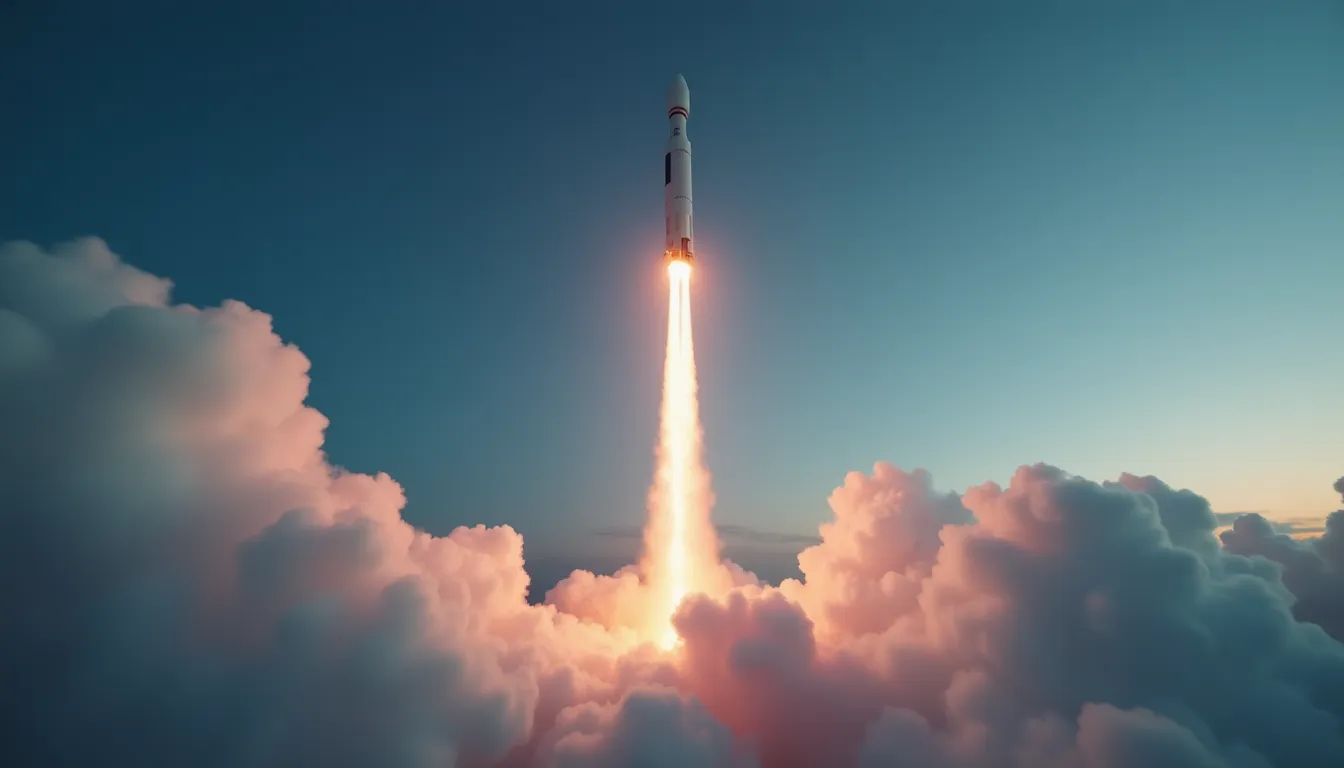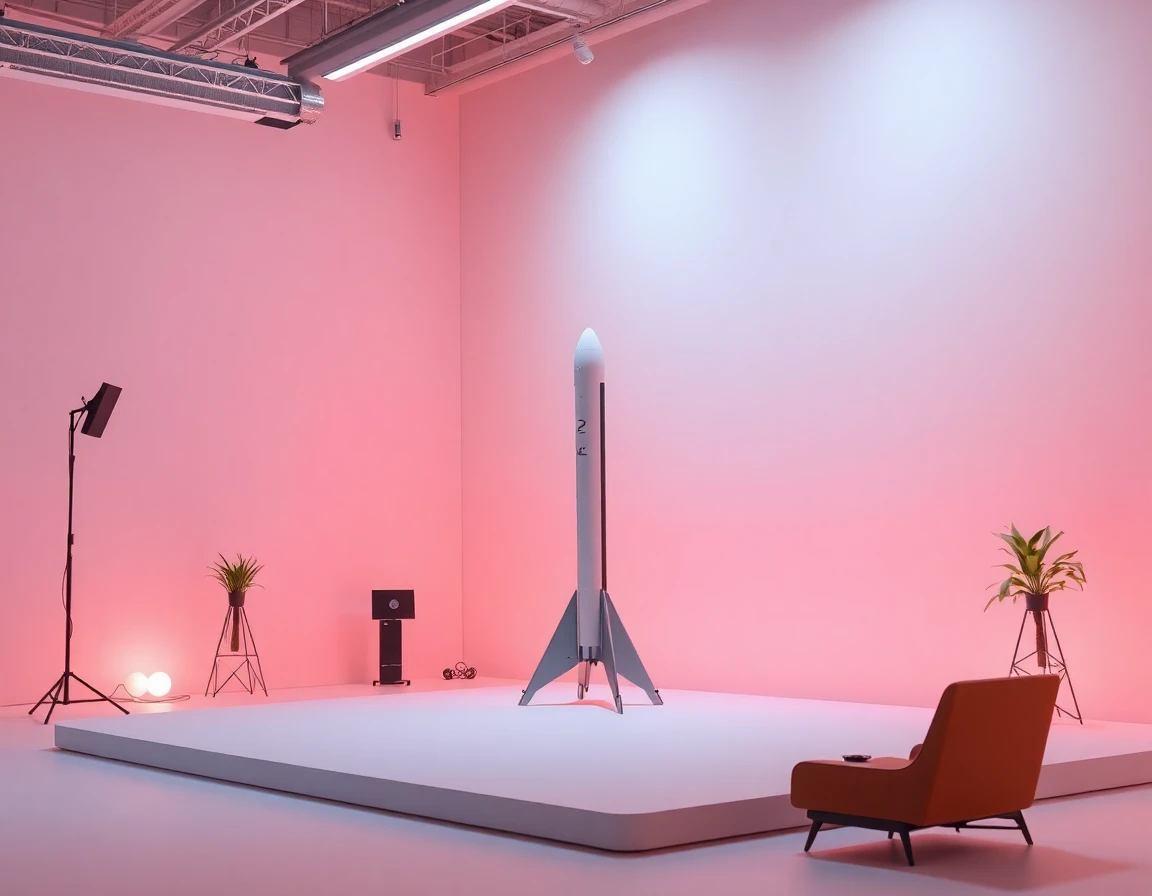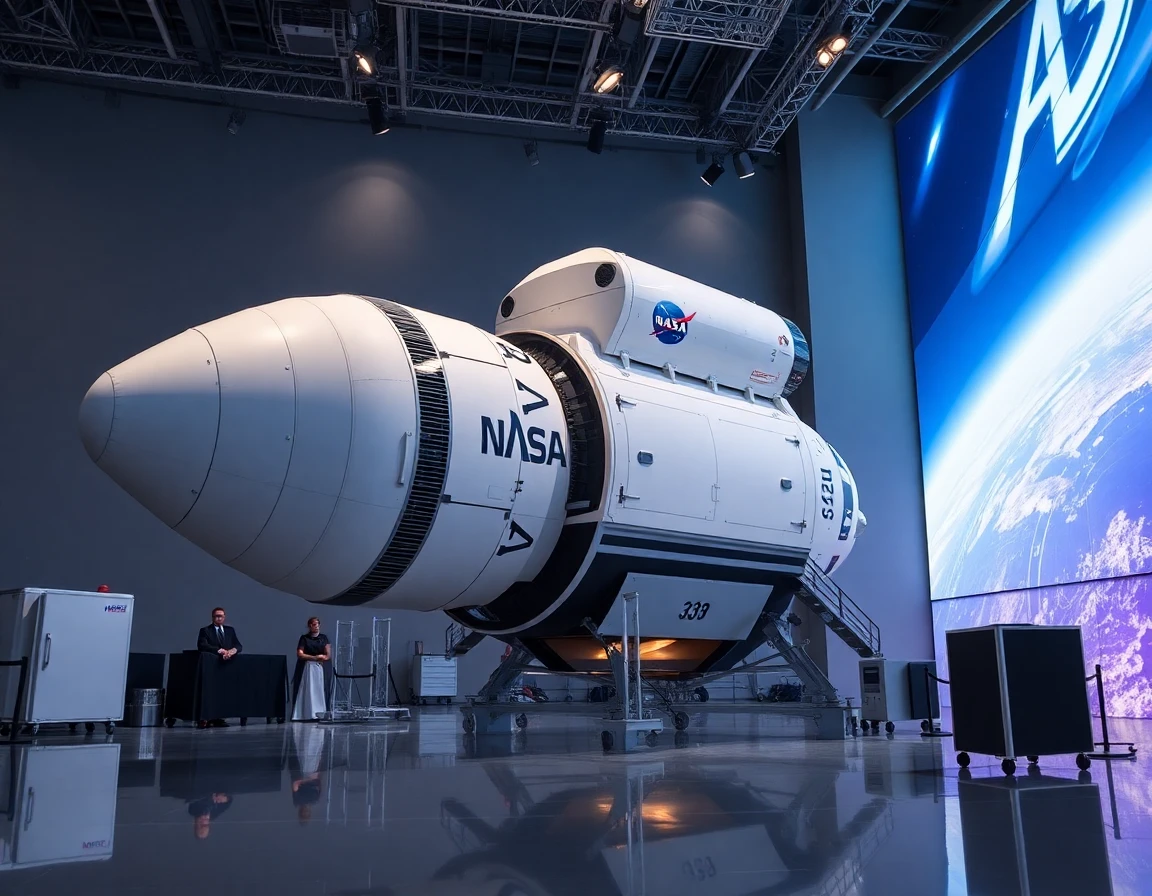In recent weeks, the aerospace and defense sectors have witnessed unprecedented activity in spacecraft launches and technological advancements. As companies like SpaceX solidify their dominance, agencies such as NASA and ESA make significant strides toward future missions. This article delves into the latest developments that are reshaping the landscape of space exploration.
Record Launch Cadence and Satellite Deployments
The launch frequency in 2025 has reached remarkable heights, with SpaceX leading the charge. On October 7, SpaceX’s Falcon 9 rocket completed its 126th mission, successfully deploying 28 Starlink satellites from Cape Canaveral. This milestone brings the total number of operational satellites in the Starlink constellation to over 8,500, firmly establishing SpaceX as a leader in satellite internet infrastructure.
This relentless launch cadence underscores the importance of high-performance launch vehicles in meeting the growing demand for connectivity. Following this success, SpaceX is gearing up for the Starship Flight 11 test on October 13, which will mark the final flight of the current “Version 2” Starship model. This ambitious mission will utilize the 400-foot Super Heavy booster to deploy dummy satellites, while simultaneously testing recovery methods through splashdowns in the Gulf of Mexico and Indian Ocean. The emphasis on reusability highlights SpaceX’s commitment to reducing costs and increasing launch frequency.
Rocket Lab is also making waves with its upcoming “Owl New World” mission, slated for October 14 from New Zealand. This mission will carry Synspective’s seventh Synthetic Aperture Radar (SAR) Earth observation satellite, further contributing to the commercial launch landscape. Meanwhile, Blue Origin celebrated its 15th crewed flight of the New Shepard vehicle on October 8, highlighting the growing interest in suborbital tourism and research missions.
Agency and Industry Advances
As private companies ramp up their activities, government agencies are also progressing with ambitious projects. NASA’s Artemis II mission is on track for an April 2026 launch, with the Orion spacecraft undergoing integration with the Space Launch System (SLS) rocket. This mission will pave the way for crewed lunar exploration, marking a significant step in NASA’s return to the Moon.
Meanwhile, the European Space Agency (ESA) recently introduced a new satellite operations framework called “Pulse,” aiming to streamline satellite management and operations. Additionally, ESA has entered into a contract with Avio to develop a fully reusable upper-stage rocket, enhancing Europe’s capabilities in the competitive launch market.
China continues to make significant strides in its space program, celebrating the 100th flight of its Long March 2D rocket with the successful launch of the Fengyun 3H weather satellite. This achievement reflects China’s growing space infrastructure and ambitions.
On another front, the UAE’s Technology Innovation Institute achieved a significant milestone by successfully test-firing the country’s first liquid-fuel rocket engine on October 6, marking a critical advancement in its indigenous space technology development.
Notable Spacecraft Observations and Missions
In a remarkable display of capability, ESA’s ExoMars Trace Gas Orbiter (TGO) captured images of the faint interstellar Comet 3I/ATLAS from its orbit around Mars. This accomplishment showcases how current spacecraft can contribute to unexpected scientific observations, enhancing our understanding of celestial phenomena beyond their primary missions.
Additionally, Europe’s Sentinel-6B ocean-monitoring satellite is in its final processing stages, with a planned launch on a Falcon 9 rocket this autumn. The continuation of Earth observation efforts is essential for addressing climate change and managing natural resources effectively.
Upcoming Launches and Tests
Looking ahead, the United Launch Alliance (ULA) is preparing to launch Sierra Space’s Dream Chaser spaceplane aboard a Vulcan Centaur rocket in summer 2025. This will be the first winged commercial spaceplane mission to the International Space Station (ISS), signaling a new era of cargo resupply missions.
Japan’s Mitsubishi Heavy Industries and JAXA are also set to launch the HTV-X cargo resupply vehicle to the ISS using the H3 launch vehicle in late 2025, further contributing to international collaboration in space.
In a bold move, SpaceX has filed for FCC approval to deploy up to 15,000 additional Starlink satellites, indicating their plans for massive expansion of their satellite internet network, which would offer unprecedented global coverage.
Conclusion
The recent surge in spacecraft launches and technological advancements marks a transformative period for the aerospace industry. With private companies and government agencies pushing the boundaries of space exploration, the future holds exciting possibilities for connectivity, scientific research, and space exploration. The ongoing developments not only highlight the capabilities of modern spacecraft but also pave the way for a new era of collaboration and innovation in the cosmos.
As the industry moves forward, technologies such as high-precision advanced navigation systems and precision accelerometers will play a crucial role in ensuring the success of these missions. The advancements in spacecraft and launch systems are indeed setting the stage for an exciting future in space exploration.
References
-
Deep Space Extra (exploredeepspace.com) - 10/12/2025
-
Space and Astronomy News for the 11th of October 2025 (bintel.com.au) - 10/11/2025 *# Space and Astronomy News for the 11th of October 2025
Observing an interstellar comet. From Mars!
Are we living in the future yet?
ExoMars TGO images comet 3I/ATLAS. Image via ESA
One of the more interesting astro images to arrive in 2025 is this simple animation of the path of Comet 3I…*
-
October 2025 Space Roundup: Record Launches, Moon Mysteries & Budget Battles Rock the Space World (ts2.tech) - 10/7/2025 ***SpaceX’s latest Starlink mission:*On Oct. 7, SpaceX launched 28 Starlink satellites from Cape Canaveral and successfully landed the Falcon 9 first stage on a drone ship [1]. It was SpaceX’s 126th Falcon 9 launch of 2025, part of a record-breaking launch cadence, and brought the in‑orbit Starlink …
-
Space Notes, October 2025 - The Orkney News (theorkneynews.scot) - 10/5/2025 Because of the new crisis in the USA, of necessity this issue of ‘Space Notes’ is an interim one. There are much bigger issues at stake there than merely the future of the space programme, and I know some people would regard that statement as heretical. It reminds me of the situation in the summer o…
-
Breaking Space News (Sept 30 – Oct 1, 2025): Record Launches, Bold Contracts, and Stunning Milestones (ts2.tech) - 10/1/2025 ***Major Agency Moves:**NASA gears up for the Artemis IImission – the Orion spacecraft is being integrated with the SLS rocket, targeting launch by April 2026 [1]. ESA unveiled “Pulse”, a new framework to streamline satellite operations, and signed a contract with Avio to develop a *fully re…
-
Space calendar 2025: Rocket launches, skywatching events, missions & more! (www.space.com) - 8/14/2025 *2025 is a busy year for spaceflight and exploration with countless launches, mission milestones, industry conventions and skywatching events to look forward to.
With so much going on, it’s hard to keep track of everything. Never fear — keep up with the latest events in our 2025 space calendar. You …*
- List of spaceflight launches in October–December 2025 - Wikipedia (en.wikipedia.org) - 5/5/2025 *(Redirected from 2025 in spaceflight (October–December))
This article lists orbital and suborbital launches planned for the fourth quarter of the year 2025, including launches planned for 2025 without a specific launch date.
For all other spaceflight activities, see 2025 in spaceflight. For launch…*
-
News Archive | October 2025 - Space (www.space.com) - 3/10/2025
-
All content Archive | October 2025 - Space (www.space.com) - 3/10/2025
-
2025 in spaceflight - Wikipedia (en.wikipedia.org) - 9/20/2019



